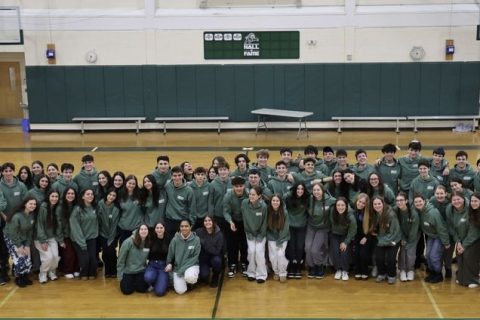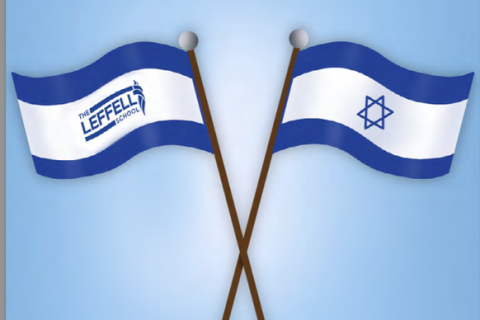by Andrew Bosworth ’22
“A beautiful sight; we’re happy tonight, walking in a winter wonderland.”
As early as November 1, students blast winter and Christmas songs on their drives every morning before entering The Leffell School and rolling down their windows to say good morning to Greg.
While all TLS students practice Judaism in school in a (relatively) similar manner, keeping kosher and wearing kippot, tallitot and tefillin if applicable, when the school day ends, students and their families celebrate their religion and the general wintertime differently, with their own customs.
“In my family, the only holiday we celebrate from a religious standpoint is Chanukah, but there are other festivities that come with the wintertime,” senior Adam Berkowitz said. “Obviously, with the general culture in the area, Christmas is the big holiday, which influences the way my family celebrates the winter season. My big thing, personally, is Christmas music.
“I love Christmas music. I am always listening to it from November 1, take a week off for Thanksgiving, and get right back into it up until Christmas. We also get gingerbread houses to build, which helps us get into the winter spirit.”
Berkowitz said that his celebration of Christmas is not out of any religious connection.
“I am not going to church and thinking of this as Jesus’ birthday,” Berkowitz said. “It is more the culture of where I grew up. For example, in Mamaroneck, where I live, they put up snowflake lights on lamposts.
“I also love watching The Grinch, which is short and watchable, and sometimes on a car ride to school, I will sit and listen to the movie in its entirety. This reminds me of the winter holidays of my childhood.”
While Berkowitz celebrates winter by listening to songs about Rudolf and chestnuts, Tanakh Department Chair Dorothy Weiss spends the time with her grandchildren, singing about gelt, dreidels and latkes.
“I am now singing songs I sang as a kid and that my grandchildren sing in their preschool programs,” Weiss said.
Berkowitz relaxed over winter break, vacationing with his family to destinations such as Kiawah Island, SC, a feeling Weiss is attempting to create this year.
“I’m taking the Shmita year seriously,” Weiss said. “I will use winter break to channel Shmita and try to stop, rest and relax, rather than do all the errands that I usually do on break. I want to really focus on what it means to stop.”
The shmita year occurs every seven years and literally means “release.” Jews are forbidden from plowing, planting or harvesting.
During non-shmita years, Weiss feels obligated to make the most of her school breaks by catching up with friends, which is difficult for her to do in between breaks.
“The metaphor of stopping has become popular in Israel this year because we stop planting every seven years, so it’s equivalent to a year of Shabbat for the land, but also for those who work the land,” Weiss said. “Shabbat, L’shbot, means to stop, so this is about stopping the routine that doesn’t give you time to slow down and appreciate what is. We are letting the universe be.”
While Weiss is not partaking in some of her normal break activities, she is still spending time with her family, continuing traditions that started with her grandparents.
“I have my grandparents’ beautiful silver menorah and my extended family always gathers together the last night of Hanukkah to light all the candles together,” Weiss said. “My grandparents used to line up all their children and grandchildren and give us Hanukkah gelt. This lineup for the gelt has gotten longer and longer over the years as new generations and children are born.”
Another annual tradition for Weiss is acting as a judge in a latke competition between her husband and other family members.
“My husband believes in grating latkes by hand and not in the Cuisinart,” Weiss said. “Then there is taste-off between hand-grated and food-processed latkes. My husband always claims that his are the best because he jokes that a little skin and blood from the hand grating makes them taste better.”
Family is also an integral piece to senior Adam Barrett’s celebration of the holidays. Barrett celebrates two different holidays with different family members.
“My dad is Catholic, so we have a meal with his side of the family around Christmas Eve,” Barrett said. “For Chanukah, we have lunch with my mom’s side of the family. We don’t go overboard, just have a meal with our families for their respective holidays.”
Barrett often spends the rest of his break working in his father’s store, as Christmas can be a hectic time for businesses.
Weiss believes that as Jews, we must embrace all.
“You don’t want to create divisions,” Weiss said. “People should explain why their holiday is meaningful to them so others can find common ground and shared values.”




